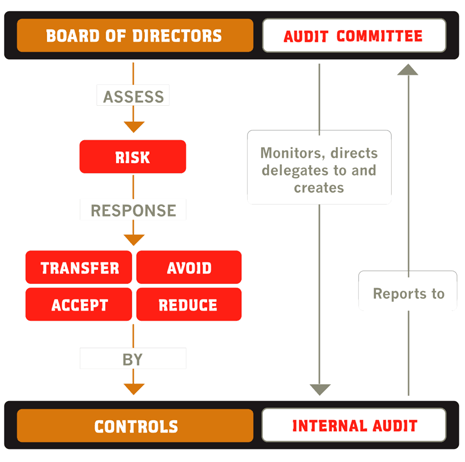Overview
The 5-day Lead Auditor training course aims to provide participants with the knowledge, and develop the skills and expertise necessary to:
-
Audit a Quality Management System (QMS) based on ISO 9001:2015
-
Ensure that the organization is competent in maintaining and continually improving its QMS
-
Perform third party audits by applying widely recognized audit principles, procedures and techniques
-
Proficiently plan and perform internal and external audits in compliance with ISO 19011 and the certification process according to ISO 17021.
-
Manage audit teams and audit programmes, communicate with customers, resolve conflicts, etc.
Based on practical exercises, the participants will master the audit tools and techniques.

ISO 13485: 2016
Lead Auditor


First time you visit our website?
Empower Your Team with Industry-Leading Training Programs
Tailored corporate training for leadership, technical skills and professional development
-
We serve corporate clients investing in peoples' knowledge, skills, and competencies, to improve business performance, enhance process, product and service quality, and achieve sustained growth and profitability.
-
We understand the meaning of the business terms "Voice of the Customer" and what constitutes "value" from the customer's point of view.
-
We also understand the difference between "value" and "waste" from the business and individual learner point of view.
-
-
We care about the people, the knowledge enhancement of which is entrusted to us by their organisation or themselves.
-
We focus on learning (not just on training, and issuing certificates) and providing post-training advice and support through workshops and consulting services.
Stratos Lazaridis
CEO The Marvel Academy
Corporate Training Solutions
Mob: +44 (0)749 114 7156
Contents
-
Overview
-
Who should attend
-
Learning objectives
-
Course content
-
Prerequisites
- Training approach
- Examination
- Competence domains being tested
- Certification
-
General course information
Overview
Internal auditing is one of the fundamental activities for maintaining a Management System, and assessing compliance with specified requirements, meeting business objectives, and identifying opportunities for system improvements. .
An effective EMS audit provides a solid framework for meeting customer challenges and realizing benefits, such as environmental protection, resource conservation and improved energy efficiency.
ISO 14001
Internal Auditor
Continual Improvement is one of the key Management Principles of ISO 14001 ("the Standard). With this in mind, internal auditing goes beyond compliance, and becomes one of the key drivers of business improvement. Also, the role of the Internal Environmental Management System (EMS) Auditor is changing; he/ she must be able to audit in-scope processes with emphasis on risk.
This 3-day highly interactive training course is designed to train delegates to play an active role in:
-
Ensuring that the documented EMS complies with the requirements of the standard (mandatory documents)
-
Managing the effectiveness of the documented EMS
-
Ensuring the adequacy and operational efficiency of the implemented EMS
-
Identifying opportunities for process and business improvement as part of the EMS auditing process
-
The development and improvement of working practices across the organisation.
The course:
-
Provides an overview of the ISO 14000 family (series), and the latest version of ISO 14001, ISO
14004, and ISO 19011 (EMS auditing)
-
Focuses delegates on the most important attributes of a modern and effective EMS
-
Helps understand the role of the internal auditor in its development and continual improvement.
Who Should Attend
This course is essential for those who will:
-
Perform internal EMS audits against procedures, work instructions, specifications, etc.
-
Plan, manage and implement internal audit programmes
-
Managers responsible for the efficiency and effectiveness of an operating business unit
Other people who find this course useful are:
-
Team Leaders
-
Supervisors
-
Those involved in EMS implementation, operation, and maintenance
-
Senior managers involved in, and/ or affected by, the outcome of EMS audits
-
Those considering EMS certification to the ISO 14001 standard.
All the above potential delegates:
-
Usually work in Environmental-driven organisations,
-
Are looking for opportunities to broaden their awareness of Environmental issues
-
Are keen to better understand how they can improve their overall contribution to the success of the business.
Learning Objectives
By the end of this course, delegates will:
Have learned how to:
-
Prepare for an audit and construct an effective checklist
-
Gather audit evidence, making use of interviewing, observation and document review skills
-
Evaluate audit evidence
-
Write nonconformity reports (NCR)
-
Verify the effectiveness of corrective action
-
Conduct a follow up audit.
Have understood the principles of internal EMS auditing, and should be able to:
-
Explain the process-based EMS model of ISO 14001 regarding the PDCA cycle
-
The contribution of the internal audit in maintaining and improving an EMS
-
Explain the role and responsibilities of an Internal EMS Auditor regarding planning, conducting, reporting and following up an internal EMS audit, in accordance with the standard
-
Plan, conduct, and report the findings of an internal EMS audit, based on the requirements of ISO 14001, and in accordance with the guidance of ISO 19011
-
Follow up on the recommended actions to rectify any non-conformances of an EMS
-
Gather objective evidence to establish conformance of the EMS with the standard
-
Interview auditees, observe how processes are performed, and sample EMS documentation
-
Write factual audit reports, that help to improve the effectiveness of the EMS by the implementation of appropriate corrective actions.
Course Content
The main topics covered during the course are:
-
Introduction to EMS auditing
-
Environmental Management Systems (and related ISO standards)
-
The audit process
-
The Role of the Internal Auditor
-
Managing the Internal audit programme
-
Factors for determining audit frequency
-
The Internal Audit Process: preparation, performance, reporting, and follow up.
Prerequisites
The following are general prerequisites for attending our training courses:
-
Proficiency in the English language
-
Consideration for other course participants
-
Willingness to actively participate during the training sessions, and an open mind to learn new ways of working.
N.B. the International Register of Certificated Auditors (IRCA) recommends that delegates should have some
prior knowledge of the following, before attending an ISO 14001 Internal Auditor training course:
-
Management systems
-
Environmental management
-
ISO 14001: 2015 standard
The above is covered at Foundation level training, which is part of the 3 day course.
Training Approach
The course covers both theory and practice:
-
Slide-based training sessions, illustrated with examples
-
Business cases
-
Preparation for the Foundation exam
-
Practice test (mock exam) similar to the certification exam.
Examination
-
Duration 45 min.
-
Format Closed book
-
Questions 30 multiple-choice questions
-
Pass mark 70% (21 correct answers)
Competence Domains Being Tested
-
Fundamental principles and concepts of Environmental Management
-
ISO 14001 requirements for Environmental Management Systems (EMS)
Certification
The ISO 14001 Internal Auditor certificate will be issued to delegates passing the exam.
For general course information please click on the link here.
N.B. Please read our Terms & Conditions (T&Cs) and ask for clarifications, if any, before
booking your training event.
Book now to reserve an on-site or online instructor-led training event of your choice.
For more details about our:
-
List of training courses please click here.
-
Consulting services please click here
-
Workshops please click here.
For queries, including non-obligation quotes, please contact us.





Training Course details
-
3 days (09.00 - 17.00 GMT)
-
Online instructor-led via zoom.us
-
£690 + VAT per delegate
-
Deadline for payment/ registration: 2 calendar days before course start
-
Included: 3 days online instructor-led training, delegate workbook, online exam, and certificate.